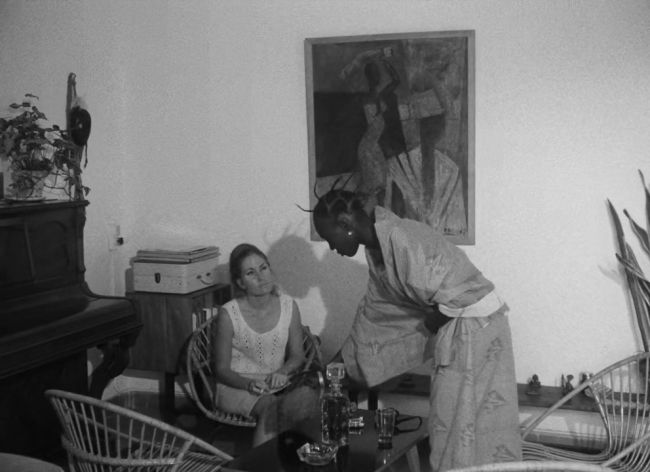
A basic respect and appreciation for an individual's capacity for imagination and emotion is one way in which paid service is different from slavery. 1966's Black Girl (La Noire de . . .) is a beautifully shot film that portrays the barrier between a black woman from Senegal and the white family from France who hire her. Director Ousmane Sembene uses effectively subtle and direct cinematic language to convey this relationship rather than more literal exposition.

Diouana (Mbissine Therese Diop) is a beautiful young woman who wishes to find work in order to support her family. She goes looking for work and also find a boyfriend (Momar Nar Sene) with whom she giddily fantasises about going to France with the family who hires her. The dialogue with her boyfriend is the only time we see Diouana actually having a conversation. One might think Therese Diop was not much of an actress otherwise because she goes about her daily routine in the white family's home without exhibiting any emotion whatsoever.

But by contrasting these scenes with the few scenes with her boyfriend we can see that her emotional existence is tied entirely to the people she knows back in Senegal. She wears a nice dress and heels every day when she works, every day expecting one of her employers to show her the shops and places of community in the beautiful French Riviera. Her voice over narration keeps us in her perspective and provides the striking contrast between an emotional voice performance and a stone faced, mechanical visual performance.

On the day she's hired, she buys a mask from a little boy which she playfully wears to tell another woman her excitement at being hired. She gives the mask to her new employers who have collected artwork in the area and it becomes a potent symbol of culture and imagination depersonalised by the persistent colonial perspective of the employers.

No comments:
Post a Comment